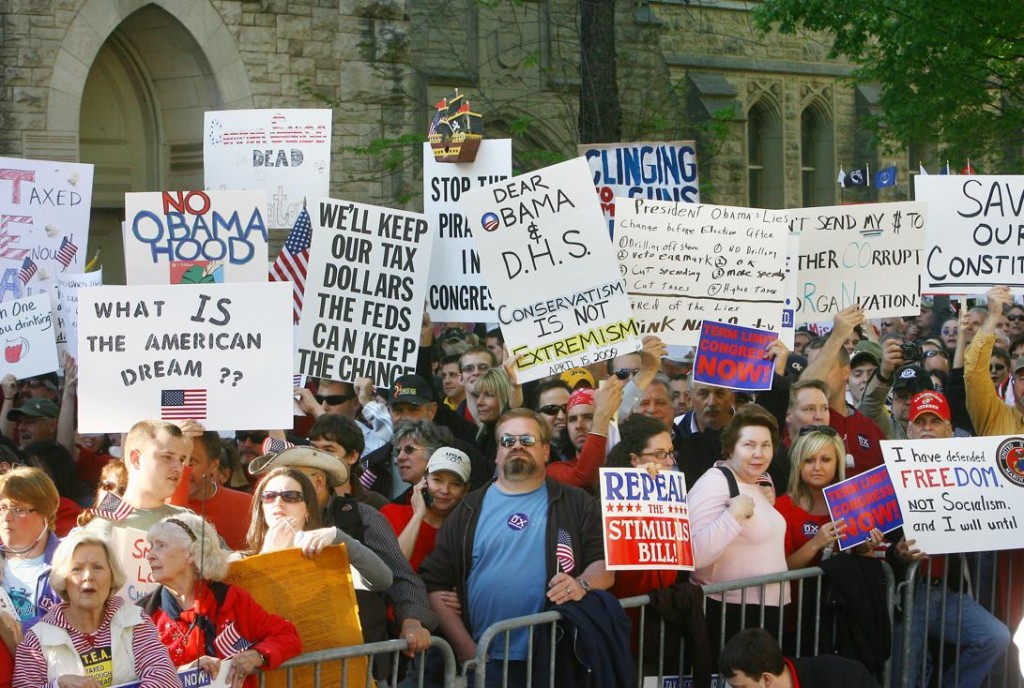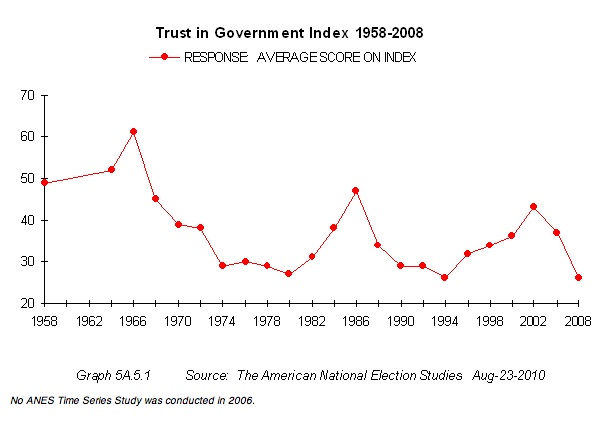Why Americans Don't Trust Anything

Jim Geraghty writes about how Americans have lost faith in their institutions over a 15 year period:
Think back to about fourteen or fifteen years ago, and everything you thought you knew at that moment.
You knew no president would be so reckless that he would get caught having sex with an intern in the Oval Office.
You may have worried about your kid’s safety at school, but you knew two alienated teenagers couldn’t turn their rage into a massacre.
You “knew” that the winner of the presidential election was the candidate who got the most votes.
You knew absentee ballots get counted, whether or not the race was close or not. You knew a vote was a vote, and “dimpled chad” was the kid in your child’s kindergarten class photo.
When you looked out at the New York City skyline, you knew it would look the same the next day.
He continues, all the way up to:
You knew that recessions usually ended within a year; they didn’t drag on, with high unemployment, year after year after year…
You figured you could pick up your copy of the Seattle Post-Intelligencer, the Rocky Mountain News, or the Christian Science Monitor every day until you died and never see those events in the headlines. It was about as likely as a federally-funded community group offering assistance to child prostitution rings.
The past fifteen years have been one rude awakening after another, where one unspoken assumption after another kept getting smacked around by a bipolar furious reality.
Geraghty has a real point: trust has declined and our paradigms have been shattered by a series of "rude awakenings", but why is this?
The decline in trust of one particular institution, the government, has not been consistent. The American National Election Studies (ANES) measures how much Americans trust the government and has a “Trust in Government Index” which weighs the answers they get from their survey questions such as (paraphrasing) “ How much of the time do you think you can trust the government in Washington to do what is right?” or “Do you think that quite a few of the people running the government are crooked?”
Here is what their index shows:

A very high peak in the late 50’s and early 60’s, low numbers throughout the 70’s, a rise against in the mid-80’s, followed by yet another decline, then a rise again, and now low numbers as recently as 2008. No data on their website for 2010 but I suspect the line would be going even lower.
So Geraghty's story is not entirely accurate (at least for government). There hasn’t been a consistent decline in trust for 15 years, instead it seems that recently trust was actually rising, before suddenly going sharply negative. The most likely cause? Large scale events such as a downturn in the economy, and a lack of clear victory in wars overseas.
This seems to match up with other times in the past when this index would increase or decrease. When the military is no longer seen as losing a war in Vietnam and the economy improves, trust in government improves in the early 1980’s.
My main problem with Geraghty's story is that it seems to have trouble separating the forrest from the trees. Yes there are “rude awakenings” that happen every year but the big picture story is driven by large-scale phenomenon. We wouldn't be feeling quite so crummy in 2011 if the economy was on an upward trend and if our personal economic outlooks were on a positive trajectory. Then we might all be writing blog posts about "unexpected positive developments" from the last 15 years.

